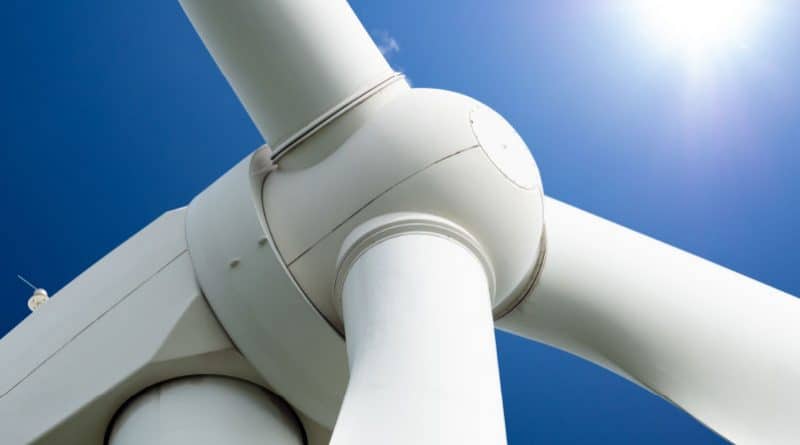Lack of Urgency in the Irish Government’s Implementation of Renewable Energy!
Ireland, with its abundant natural resources, has the potential to be a global leader in renewable energy. Despite ambitious targets and the pressing need to address climate change, the Irish Government has been criticised for its lack of urgency in implementing renewable energy projects.
Despite ambitious targets and the pressing need to address climate change, the Irish Government has been criticised for its lack of urgency in implementing renewable energy projects. This sluggish pace in transitioning to cleaner energy sources raises concerns about the country’s ability to meet its climate goals, reduce greenhouse gas emissions, and ensure a sustainable energy future. Ireland’s renewable energy potential is uniquely positioned to harness renewable energy, particularly from wind, both onshore and offshore, as well as solar and tidal energy. The country’s geographic location provides it with some of the best wind resources in Europe. Offshore wind, in particular, holds immense potential, with the capacity to generate significant amounts of electricity that could not only meet domestic demand but also support energy exports.
Moreover, Ireland’s commitment to reducing carbon emissions is reflected in its targets. The Climate Action Plan 2021 set a goal to achieve a 51% reduction in greenhouse gas emissions by 2030 and to reach net-zero emission by 2050. These targets align with the European Union’s broader climate ambitions and represent a significant challenge that requires a rapid and decisive shift towards renewable energy.
The pace of implementation despite these targets and clear potential for renewable energy in Ireland, the pace of implementation has been slow. The Irish Government has faced criticism for failing to act swiftly enough to build the necessary infrastructure, streamline regulatory processes, and incentivise private sector investment in renewable energy projects.
One of the main areas of concern is the development of offshore wind energy. While other European countries such as Denmark and former EU country the UK, have made significant strides in offshore wind, Ireland’s progress has been comparatively sluggish. As of 2023, Ireland had only a small amount of installed offshore wind capacity, far below its potential. The slow pace of development can be attributed to a combination of factors, including complex regulatory processes, lengthy planning procedures, and a lack of clarity in government policy.
The onshore wind sector, while more developed, also faces challenges. Local opposition planning delays, and grid connection issues have hampered the expansion of onshore wind farms. Additionally, the lack of investment in grid infrastructure has limited the ability to integrate renewable energy into the national grid, creating bottlenecks that delay project implementation.

Solar energy, which has been expanding rapidly in other countries, has seen relatively modest growth in Ireland. Despite the country’s potential to harness solar power, particularly in the southern regions, the lack of strong government incentives and clear policy direction has resulted in slower adoption rates compared to other EU countries.
One of the key factors contributing to the slow implementation of renewable energy projects in Ireland is the cumbersome regulatory and bureaucratic landscape. The process of obtaining planning permission for renewable energy projects, particularly large-scale wind and solar farms, can be lengthy and fraught with delays. Developers often face challenges navigating a complex web of regulations, and local opposition can further complicate the approval process.
The Marine Planning and Development Management (MPDM) Bill, which is intended to streamline the planning process for offshore wind projects, has been delayed multiple times. The legislation is crucial for providing the legal framework needed to accelerate the development of offshore wind energy, but its slow progress through the legislative process has been a significant setback.
Furthermore, the grid infrastructure in Ireland has not kept pace with the growth of renewable energy. The national grid requires substantial upgrades to accommodate the increasing share of renewable energy and ensure that it can be efficiently transmitted from generation sites to consumers. However, investment in grid infrastructure has been inadequate, leading to delays in connecting new renewable energy projects.
The lack of urgency in implementing renewable energy projects has broader economic and social implications. Ireland’s continued reliance on fossil fuels, particularly natural gas, exposes the country to volatile energy prices and supply risks, as seen during the recent global energy crises. This dependence on imported fossil fuels also undermines energy security and economic stability.
Moreover, the slow pace of renewable energy development means that Ireland risks missing out on the economic opportunities associated with the green transition. Renewable energy projects, particularly in offshore wind, have the potential to create thousands of jobs in construction, maintenance and related industries. The development of a robust renewable energy sector could also position Ireland as a leader in green technologies, attracting investment and fostering innovation.
On the social front, the slow transition to renewable energy undermines public trust in the Government’s commitment to addressing climate change. The younger generation, in particular, has been vocal about the need for urgent action to combat climate change. The perceived lack of urgency in implementing renewable energy projects risks alienating these groups and eroding support for government policies.
In conclusion, while Ireland has the potential to be a leader in renewable energy, the lack of urgency in implementing projects poses a significant challenge. The Irish Government must act swiftly to overcome regulatory and bureaucratic hurdles, invest in infrastructure and create a favourable environment for renewable energy development. Only through decisive action can Ireland meet its climate goals, ensure energy security and build a sustainable future.
Author: Colm McGrath, MD, Surety Bonds part of Howden
Follow Irish building magazine on LinkedIn for the latest news and updates.

